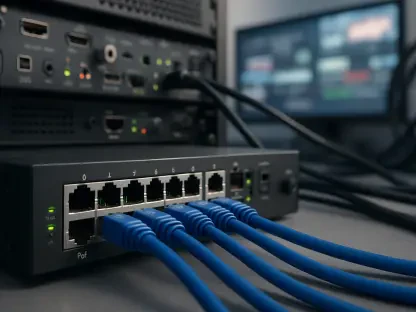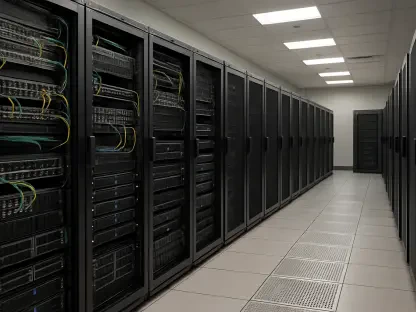The journey toward internet accessibility in Cuba mirrors the country’s complex historical tapestry, characterized by repeated attempts to connect with the world despite economic constraints. Initially confined to Wi-Fi hotspots in public areas, Cuban internet access emerged as a novel avenue for communication. These locations, reminiscent of makeshift internet cafes, provided a unique space where Cubans could momentarily escape isolation, albeit at a high financial cost. As Cuban citizens braved long waits for internet cards and sought ways to share connectivity, their resilience fostered hope for better service and fueled community bonds. This collective effort culminated in a transformation in December 2018, when mobile data became available, granting unprecedented privacy and autonomy in virtual interactions.
The Advent of Mobile Data
Revolutionizing Communication and Privacy
The introduction of mobile data was a pivotal moment that fundamentally altered the Cuban way of communicating. This shift afforded citizens newfound privacy, transforming how they engaged with digital platforms. No longer tethered to public Wi-Fi locations, individuals could connect from their homes or on the go, fostering a sense of freedom previously unattainable. Over time, this tool expanded beyond personal use, playing a significant role in reshaping public discourse. As internet access became more affordable, albeit still costly for some due to economic disparities, Cubans were better able to share their stories, opinions, and experiences with one another and the outside world. This development marked a crucial step toward digital inclusivity, despite the persistent challenge of uneven access.
Economic Implications of Digital Access
While the introduction of mobile data marked progress, it also spotlighted deep-seated economic inequalities pervasive across the nation. Mobile internet, though more accessible than before, remained expensive for those at the lower end of the economic spectrum, enlarging the digital divide. Crucially, this disparity manifested itself in the ability to engage with online platforms fully, often leaving marginalized communities at a disadvantage. Efforts to bridge this gap have been initiated, yet progress remains slow in light of broader economic woes, including inflation and scant resource availability. As connectivity continued to evolve, the cost of remaining digitally connected weighed heavily on those seeking to partake in the new digital era, forcing many Cubans to continuously adapt and innovate in the face of adversity.
Response to Price Hikes
Public Disapproval and Digital Activism
Recent announcements of increased mobile data pricing added layers of complexity to an already shaky economic reality, sparking a wave of public disapproval. The reaction was not confined to private grievances but resonated across digital spaces, breaking cultural norms of such expressions being hushed and fragmented. This surge in public outcry, largely driven by university students, marked a shift from passive discussions to active demands for transparency and explanations from authorities. This growing wave of digital activism reflected an evolving sense of empowerment among Cubans, facilitated by internet access, making it feasible for citizens to voice their discontent and demand accountability with increasing fervor.
Uniting Voices for Social Change
As connectivity permeated everyday life, Cubans demonstrated newfound cohesion, utilizing internet platforms to exchange ideas, advocate for change, and mobilize efforts for collective action. This digital tool has transcended mere communication, transforming into a vehicle for significant societal shifts. The collective disapproval over price hikes exemplifies this change, as it sparked broader conversations about equity and justice, compelling individuals to unite in their pursuit of greater access and rights. Such digital solidarity underscores the internet’s role as more than a conduit for connecting, rather a means of galvanizing civic engagement and empowering individuals to contest socio-economic inequalities.
Looking Ahead
The Internet as a Catalyst for Development
As Cubans navigate the evolving digital landscape, the strategic role of the internet grows ever more apparent. Beyond serving individual needs, it emerges as a critical tool for fostering technological advances and societal reform. Importantly, discussions have begun centering around expanding internet infrastructure and making digital access more equitable, considering both technological and economic barriers that hinder progress. Furthermore, the internet’s potential to act as a catalyst for educational opportunities, entrepreneurial endeavors, and innovative solutions to nationwide challenges cannot be overstated. This digital journey exemplifies a path toward potential growth and empowerment, offering hope for a more connected and resilient Cuba.
Embracing Digital Opportunities
Recent news of rising mobile data prices has added more complexity to an already unstable economic landscape, triggering widespread public dissatisfaction. This discontent is not merely limited to private complaints but has echoed loudly across online platforms, breaking the typical cultural norm where such grievances are commonly muted and scattered. The wave of public complaints, led largely by university students, signifies a shift from passive dialogue to active demands for clarity and accountability from those in power. This increasing trend of digital activism showcases an evolving sense of empowerment among Cubans, enabled by the internet, allowing them to express their dissatisfaction and demand transparency from the authorities. With more accessibility to online media, citizens can now engage actively in political discourse, asking for explanations and holding officials accountable, demonstrating a newfound sense of agency in their socio-economic environment.









